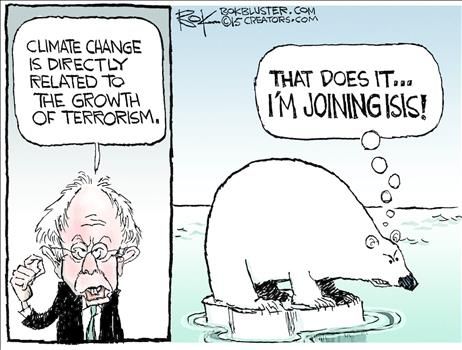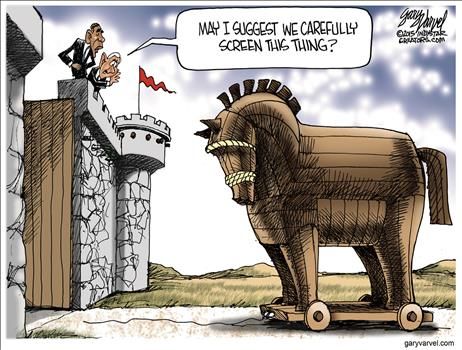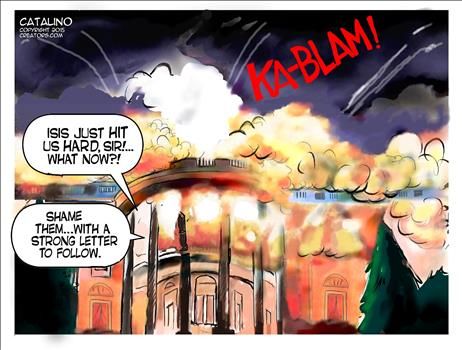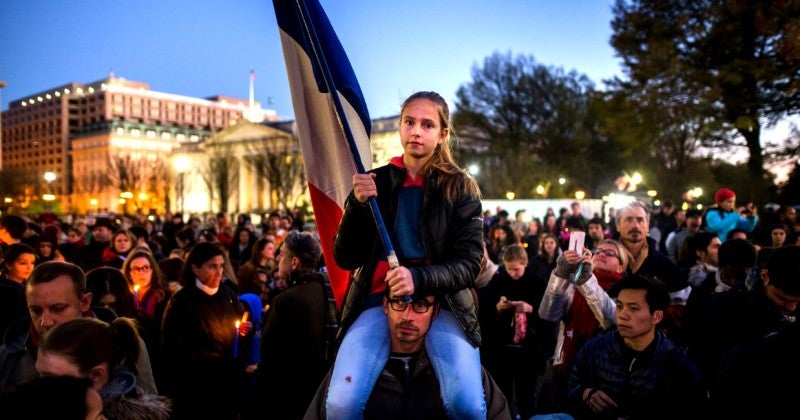http://townhall.com/columnists/scottklusendorf/2015/11/30/in-their-own-words-prolifers-arent-the-only-ones-who-call-abortion-killing-n2086417/page/full

Well, that didn’t take long. Within hours of the Colorado shootings, abortion-choice advocates were placing blame squarely on the shoulders of pro-lifers. Apparently, we’re guilty of “violent” rhetoric—that is, claiming that abortion intentionally kills an innocent human being—and that rhetoric is fueling acts of terror against abortion providers.“Do we really think that there are no consequences to claiming that abortion is murder,” writes Jessica Valentiin The Guardian. “Can we stop pretending that pro-life lies don’t have an effect…We know why this [attack] happened. Clinic workers who put their lives on the line every day know why this happened. Because of hate, because of lies, and because words matter. We must demand that the violent radical language and lies about abortion stop.”
Let’s review the basic pro-life argument:
P1: It is wrong to intentionally kill an innocent human being.
P2: Abortion intentionally kills an innocent human being.
P3: Therefore, abortion is morally wrong.
Pro-life advocates defend that syllogism with science and philosophy. The science of embryology establishes that from the earliest stages of development, you were a distinct, living, and whole human being. You didn’t evolve from an embryo. You once were an embryo. Philosophically, pro-lifers contend there is no essential difference between the embryo you once were and the adult you are today that justifies killing you at that earlier stage of development. Differences of size, level of development, environment, and degree of dependency are not good reasons for saying you could be killed then but not now.
Where in that pro-life argument is there any suggestion pro-lifers should open fire on abortion doctors? Instead of refuting the moral logic of the pro-life argument, abortion-choicers resort to personal attacks that do nothing to refute the pro-life view or establish the abortion-choice one. That is, even if pro-life rhetoric leads to violence, that fact would do nothing to refute the pro-life argument that abortion intentionally kills an innocent human being.
Setting aside for the moment that no one outside the shooter knows the true motive for the Colorado killings, or even if he was targeting abortion providers, here are three undeniable facts:
1. Within moments of the shootings, pro-life organizations everywhere were all over social media condemning the killings and asking prayer for the families of the victims.
2. The police officer killed defending ... Planned Parenthood employees was a Christian pastor whose church opposed abortion. (I know; I spoke there several years ago.)
3. Pro-lifers aren’t the only ones who call abortion intentional killing. So do abortion-choice advocates. If pro-lifers are to blame for their alleged dangerous rhetoric, what about these leaders from the other side?
* Dr. Warren Hern, author of Abortion Practice, the medical text that teaches abortion procedures, tolda Planned Parenthood conference: “We have reached a point in this particular technology [D&E abortion] where there is no possibility of denying an act of destruction. It is before one’s eyes. The sensations of dismemberment flow through the forceps like an electric current.”
* As far back as 1970, a candid editorial in California Medicine, a journal sympathetic to abortion, highlighted the use of deceptive language: “Since the old ethic has not yet been fully displaced it has been necessary to separate the idea of abortion from the idea of killing, which continues to be socially abhorrent. The result has been a curious avoidance of the scientific fact, which everyone really knows, that human life begins at conception and is continuous whether intra-or extra-uterine until death. The very considerable semantic gymnastics which are required to rationalize abortion as anything but taking a human life would be ludicrous if they were not often put forth under socially impeccable auspices. It is suggested that this schizophrenic sort of subterfuge is necessary because while a new ethic is being accepted the old one has not yet been rejected.”
* Ronald Dworkin, in his book Life’s Dominion, says abortion deliberately kills a developing embryo and is a choice for death.
* Faye Wattleton, former President of Planned Parenthood, told MS Magazine in 1997, “I think we have deluded ourselves into believing that people don't know that abortion is killing. So any pretense that abortion is not killing is a signal of our ambivalence, a signal that we cannot say yes, it kills a fetus” (“Speaking Frankly,” May/June 1997).
* · Naomi Wolf, a prominent feminist author and abortion supporter, writes in the left-wing New Republic that so-called pro-choicers deceive themselves with dehumanizing speech. “Clinging to a rhetoric about abortion in which there is no life and no death, we entangle our beliefs in a series of self-delusions, fibs and evasions. And we risk becoming precisely what our critics charge us with being: callous, selfish and casually destructive men and women who share a cheapened view of human life...we need to contextualize the fight to defend abortion rights within a moral framework that admits that the death of a fetus is a real death.”
* Feminist Camille Paglia is even more blunt in a 2008 Salon article: “Hence I have always frankly admitted that abortion is murder, the extermination of the powerless by the powerful. Liberals for the most part have shrunk from facing the ethical consequences of their embrace of abortion, which results in the annihilation of concrete individuals and not just clumps of insensate tissue.”
Maybe our problem isn’t rhetoric, but behavior. Abortion-choice activists know abortion is killing. They just won’t live with that truth.
[bold and itlics emphasis mine]
Scott Klusendorf is President of Life Training Institute and the author of The Case for Life: Equipping Christians to Engage the Culture.






















